Embarking on a hike in the grandeur of the great outdoors can be a euphoric experience, yet occasionally we all find ourselves craving that spark to ignite our adventurous spirit. I completely understand! As an experienced hiker with an insatiable appetite for literature, I’ve delved into countless books and found that certain works not only kindle my passion for hiking but also enhance my outdoor savvy.
This blog post is crafted to spotlight hiking literature and inspirational books poised to transform your hikes into unforgettable escapades. Get set to awaken the explorer within you!
Key Takeaways
- “On Trails: An Exploration” by Robert Moor, “A Walk in the Woods” by Bill Bryson, “Into Thin Air” by Jon Krakauer, “Wild” by Cheryl Strayed, and “Thru-Hiking Will Break Your Heart” by Carrot Quinn are must-read hiking books for inspiration and adventure.
- For practical tips and skills, consider reading “Medicine for the Outdoors” by Paul S. Auerbach, “Wilderness Navigation” by Bob and Mike Burns, “The Backpacker’s Field Manual” by Rick Curtis, “The Ultimate Hiker’s Gear Guide” by Andrew Skurka, and “Campground Hound” by M.E. Nash.
- Reading hiking literature offers benefits such as inspiring new adventures, learning useful hiking skills and safety tips, gaining knowledge about nature and the environment, and finding motivation for personal growth and self-discovery.
Best Hiking Books for Inspiration and Adventure
If you’re looking for inspiration and adventure, these hiking books are a must-read: “On Trails: An Exploration” by Robert Moor, “A Walk in the Woods” by Bill Bryson, “Into Thin Air” by Jon Krakauer, “Wild” by Cheryl Strayed, and “Thru-Hiking Will Break Your Heart” by Carrot Quinn.
“On Trails: An Exploration” by Robert Moor
“On Trails: An Exploration” by Robert Moor is a must-read. It gets 4.3 out of 5 stars from 1,240 reviews. You can get the book in paperback format for $10.39. This book tells you about nature trails and outdoor adventures in a fun way.
Moor brings together history, science, and his own hiking experiences to teach us all about paths and trails. He helps us see what trailblazing is like for outdoor enthusiasts like us! In this book, you’ll find interesting ideas that hikers come up with during their journeys in the wilderness.
You also learn how to use trail maps better for your own exploration and outdoor recreation activities!
“A Walk in the Woods” by Bill Bryson
“A Walk in the Woods” is a great book. Bill Bryson wrote it. He tells us about his hike on the Appalachian Trail with his friend Katz. The trail is very long and wild, but they try to walk it all.
Bill’s book makes us laugh. It shows us fun things about trees, animals, and camping. But he also talks about how hard it can be to do a big hike like this one.
Many people love this book because they want to go on adventures too. They read about Bill and Katz’s trip and say, “I want to do that!” So then they plan their own hikes!
This book helps you know what might happen on a long hike. You will see that bad things can happen, but good things will come too.
“Into Thin Air” by Jon Krakauer
“Into Thin Air” by Jon Krakauer is a top book. This nonfiction book came out in 1997. It tells of Krakauer’s own time on Mount Everest. The story shows the risks and trials of climbing high places.
Many folks see it as one of the must-read hiking books. It gives a deep look at what happens to people when they face hard times up in the mountains. The book has gotten many good words for how well it tells stories and gets inside people’s heads under stress.
“Wild” by Cheryl Strayed
I read a book called “Wild” by Cheryl Strayed. It’s a memoir about her solo hiking journey on the Pacific Crest Trail. The book is all about reinvention and self-discovery, and it shows how she grew as a person through her experiences on the trail.
One thing that stood out to me was Cheryl’s resilience in facing challenges along the way. Many readers highly regard this book for its inspiring story of personal growth and determination.
“Thru-Hiking Will Break Your Heart” by Carrot Quinn
I read this book called “Thru-Hiking Will Break Your Heart” by Carrot Quinn, and it was really inspiring. Carrot Quinn shares her personal journey of thru-hiking the Pacific Crest Trail, which is a long-distance hiking trail.
She talks about the challenges and hardships she faced along the way, but also how it transformed her. It’s a great book for anyone who loves hiking and wants to be inspired by someone’s adventure in the wilderness.
You can find it on Amazon and see what other customers have said about it too!
Best Hiking Books for Practical Tips and Skills
Some of the best hiking books for practical tips and skills include “Medicine for the Outdoors” by Paul S. Auerbach, “Wilderness Navigation” by Bob and Mike Burns, “The Backpacker’s Field Manual” by Rick Curtis, “The Ultimate Hiker’s Gear Guide” by Andrew Skurka, and “Campground Hound” by M.E.
Nash.
“Medicine for the Outdoors” by Paul S. Auerbach
As a hiking enthusiast, one book that I highly recommend is “Medicine for the Outdoors” by Paul S. Auerbach. This book is considered a must-have for every hiker’s bookshelf because it provides essential knowledge and practical tips on how to handle healthcare in outdoor settings.
Written by a medical doctor and wilderness medicine expert, this book covers topics such as first aid, emergency care, common medical problems, and prevention of injuries while hiking.
It offers step-by-step instructions and useful advice to help you stay safe and handle medical emergencies in nature. Whether you’re an experienced hiker or just starting out, “Medicine for the Outdoors” is an invaluable resource that can provide you with the necessary skills to enjoy your outdoor adventures with confidence.
“Wilderness Navigation” by Bob and Mike Burns
I highly recommend “Wilderness Navigation” by Bob and Mike Burns as one of the best hiking books for practical tips and skills. This popular book is a go-to resource for outdoor enthusiasts who want to improve their navigation abilities.
Whether you’re a beginner or an experienced hiker, this book has something to offer. It covers topics such as topographic maps, compass navigation, orienteering, GPS technology, land navigation, trail finding, wayfinding, wilderness survival, and various navigation techniques.
The third edition of this bestselling book was published in 2015 and is widely used as a textbook in outdoor education. So if you want to enhance your outdoor skills and feel more confident on your hikes, make sure to add “Wilderness Navigation” to your reading list!
“The Backpacker’s Field Manual” by Rick Curtis
As a hiking enthusiast, one of the best books you can add to your collection is “The Backpacker’s Field Manual” by Rick Curtis. This comprehensive guidebook offers practical tips and skills for backpacking in the backcountry.
Whether you’re a beginner or an experienced hiker, this book covers everything from gear selection to trip planning, navigation techniques to first aid skills. It’s considered one of the most comprehensive guides on the market, offering detailed and informative content that will help enhance your backpacking experience.
Make sure to grab a copy of “The Backpacker’s Field Manual” if you’re serious about improving your hiking skills!
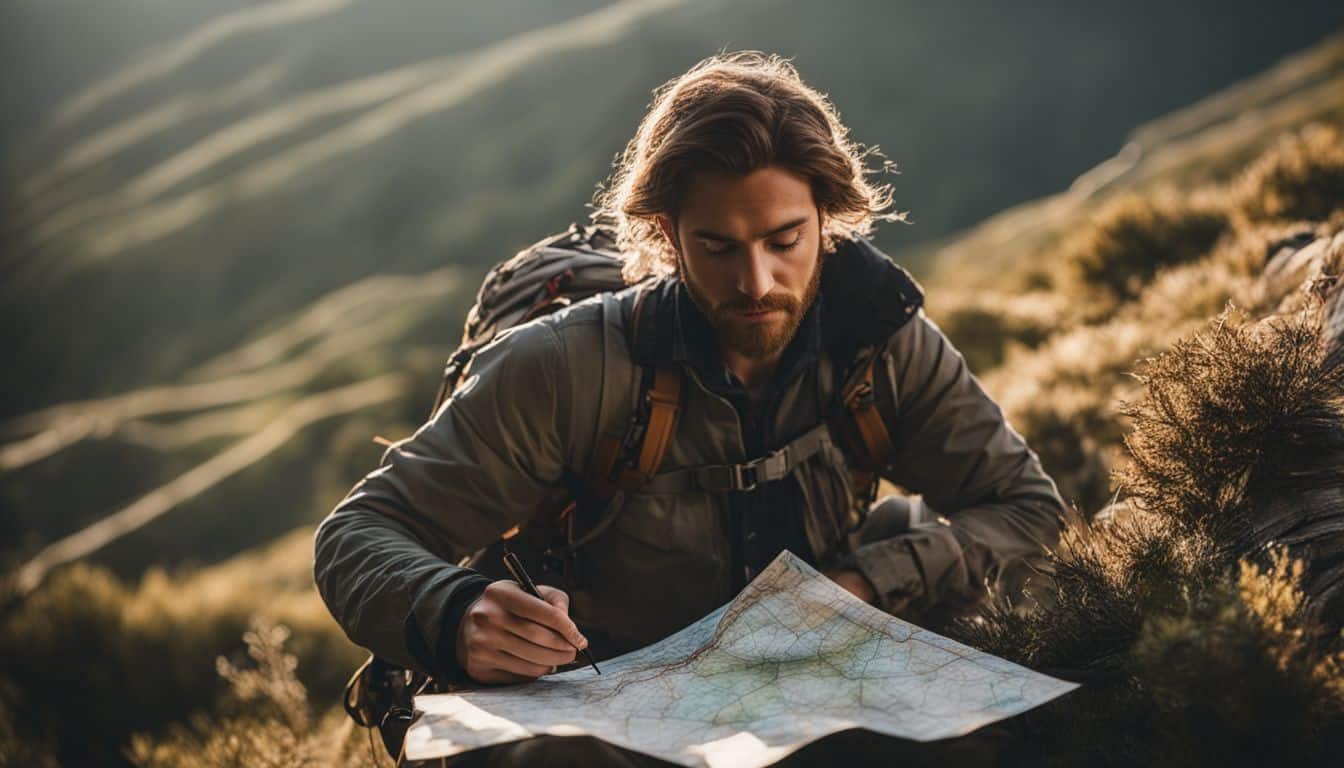
“The Ultimate Hiker’s Gear Guide” by Andrew Skurka
As a hiking enthusiast, one book that should definitely be on your reading list is “The Ultimate Hiker’s Gear Guide” by Andrew Skurka. This comprehensive guide covers everything you need to know about outdoor gear and equipment for your hikes.
From clothing and footwear to backpacks, shelter systems, and camp stoves, this book has it all. Written by renowned adventurer Andrew Skurka, it offers practical tips and skills that will help you make the most of your hiking adventures.
Considered the ultimate guide for hikers, “The Ultimate Hiker’s Gear Guide” is a valuable resource that will enhance your knowledge and ensure you are well-prepared for any trail. So grab a copy of this book and take your hiking experience to the next level!
“Campground Hound” by M.E. Nash
I recently discovered a great hiking book called “Campground Hound” by M.E. Nash, which falls under the category of Best Hiking Books for Practical Tips and Skills. In this book, the author takes us on camping adventures with a clever hound who sniffs out nine new challenges in camping.
It’s an engaging read that offers valuable advice on outdoor skills and overcoming camping challenges. Whether you’re a beginner or an experienced camper, “Campground Hound” is sure to provide practical tips and insights for your next outdoor adventure.
Benefits of Reading Hiking Literature
Reading hiking literature offers numerous benefits to outdoor enthusiasts. First and foremost, it provides inspiration for new adventures and encourages individuals to explore new trails and destinations.
Additionally, reading these books allows hikers to learn practical skills and safety tips that are crucial for a successful hike. Moreover, through hiking literature, readers can gain valuable knowledge about nature and the environment, fostering a deeper appreciation for the natural world.
Furthermore, these books often serve as motivation for personal growth and self-discovery through outdoor experiences. Last but not least, reading hiking literature helps create a sense of community among outdoor enthusiasts by connecting individuals who share a love for nature and adventure.
Inspiration for new adventures
Reading hiking literature and inspirational books can provide you with a wealth of inspiration for new adventures. These books are filled with captivating stories, exciting journeys, and awe-inspiring accounts of outdoor exploration.
They can transport you to remote trails, beautiful landscapes, and rugged mountain peaks, all from the comfort of your own home. Through these pages, you’ll experience the thrill of embarking on epic hikes and expeditions, discover hidden gems in nature, and be inspired to plan your next outdoor adventure.
So grab a book that resonates with you and get ready to embark on a literary journey that will ignite your passion for hiking and open up a world of possibilities.
Learning useful hiking skills and safety tips
When it comes to hiking, it’s important to learn useful skills and safety tips. Knowing how to navigate in the wilderness, read a map or use a compass can help you stay on track. Understanding basic first aid and knowing what supplies to bring are also crucial for staying safe on the trail.
It’s important to be prepared and confident in your abilities before heading out into the great outdoors. By learning these skills, you can have an enjoyable and safe hiking experience while exploring nature’s beauty.
Gaining knowledge about nature and the environment
Reading hiking literature is a fantastic way to gain knowledge about nature and the environment. As a hiking enthusiast, I have found that these books provide valuable insights into different ecosystems, wildlife, and conservation efforts.
They teach me about the importance of protecting our natural resources and promote environmental awareness. By reading hiking books, I am able to deepen my understanding of the world around me and develop a greater appreciation for its beauty and significance.
It’s amazing how much can be learned from these books while also enjoying captivating stories of outdoor adventures. Reading about nature not only expands my knowledge but also inspires me to explore more of the great outdoors and contribute to its preservation.
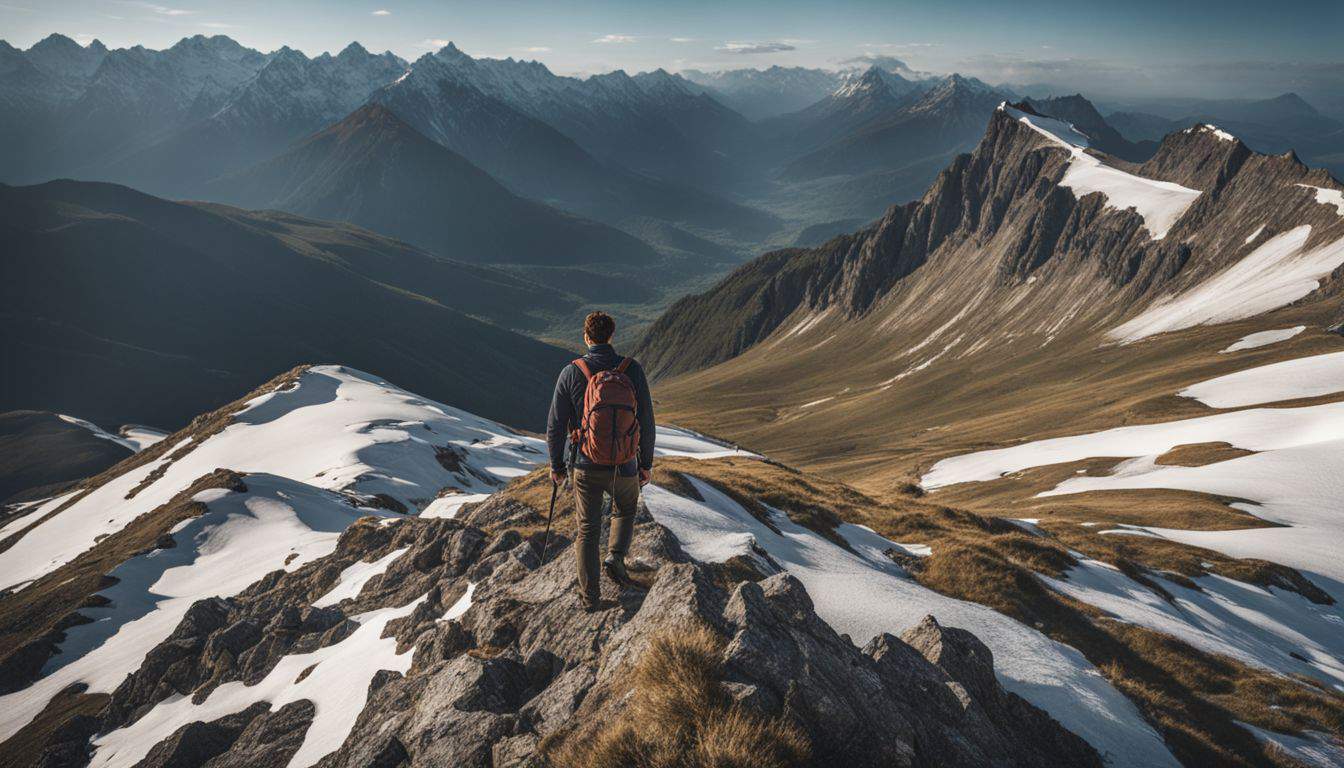
Motivation to pursue personal growth and self-discovery
Reading hiking literature can be a great source of motivation for personal growth and self-discovery. It can inspire you to step out of your comfort zone, explore new adventures, and challenge yourself mentally and physically.
Through the stories of others who have embarked on hiking journeys, you can gain valuable insights into their experiences, learn from their triumphs and struggles, and find encouragement to pursue your own goals.
Hiking literature not only provides practical tips and knowledge about the outdoors but also offers a deeper connection with nature and the environment. By immersing yourself in these books, you can develop a greater appreciation for the natural world around you while fostering personal reflection and growth through your own outdoor experiences.
Connection with a community of outdoor enthusiasts
When you read hiking literature, you have the opportunity to connect with a community of outdoor enthusiasts. Being part of this community can be incredibly beneficial for your hiking journey.
You can find support, motivation, and inspiration from others who share your love for nature and adventure. They can offer advice, recommendations, and information on hiking trails and outdoor activities.
By connecting with like-minded individuals, you create a sense of belonging and camaraderie that enhances your overall hiking experience. Joining a community of outdoor enthusiasts fosters a deep appreciation for nature and the outdoors while providing valuable connections that will enrich your hikes.
Guide for Hiking Literature and Inspirational Books
Looking for some guidance on choosing hiking literature and inspirational books? Here are a few tips to help you out:
– Read book reviews and recommendations from fellow hikers.
– Consider your specific interests and goals when selecting books.
– Look for books written by experienced hikers and outdoor experts.
– Check for updated editions or newer releases of popular hiking books.
– Consider the writing style and storytelling quality of the books.
That’s it! Now you have a guide to choose the best hiking literature that will inspire and enhance your outdoor experiences.
Tips for Choosing Hiking Literature
When choosing hiking literature, it’s important to read book reviews and recommendations, consider your specific interests and goals, look for books by experienced hikers and outdoor experts, check for updated editions or newer releases, and consider the writing style and storytelling quality.
Read book reviews and recommendations
I love reading hiking books, and one way to find great ones is by reading book reviews and recommendations. These reviews can give you insight into the content, writing style, and overall enjoyment of a book.
It’s helpful to hear from fellow hikers who have read the books before you decide which ones to add to your reading list. By checking out these reviews, you can discover new hiking literature that will inspire and inform your outdoor adventures.
So don’t forget to do some research on what other hikers recommend!
Consider your specific interests and goals
When choosing hiking literature, it’s important to consider your own interests and goals. Think about what you want to get out of reading these books. Do you want practical tips and skills for hiking? Or are you more interested in inspiring stories that will motivate you to explore new trails? Maybe you’re looking for books that focus on nature and the environment.
By considering your specific interests and goals, you can find hiking literature that will truly enhance your outdoor experience.
Look for books by experienced hikers and outdoor experts
When choosing hiking literature, it’s a good idea to look for books written by experienced hikers and outdoor experts. These authors have firsthand knowledge of the trails and wilderness, which means they can provide valuable insights and advice.
Their books often cover practical topics like trip planning, lightweight backpacking techniques, and improving your wilderness skills. Additionally, reading about their personal journeys and adventures can be incredibly inspiring.
So if you want to learn from the best and get motivated for your own outdoor adventures, be sure to check out books by experienced hikers and outdoor experts. They offer a valuable resource that combines useful tips with entertaining storytelling.
Check for updated editions or newer releases
When choosing hiking literature, it’s important to check for updated editions or newer releases. This ensures that you have the most current and up-to-date information. Updated versions may include new trails, safety tips, or gear recommendations that can enhance your hiking experience.
Additionally, revised editions often address any errors or gaps in previous editions, providing more accurate and reliable information. New releases can introduce you to fresh perspectives and insights from experienced hikers and outdoor experts.
By staying informed about the latest publications in hiking literature, you can make sure you’re getting the best advice and guidance for your outdoor adventures.
Consider the writing style and storytelling quality
When choosing hiking literature, it’s important to consider the writing style and storytelling quality. Look for books that capture your attention and make you feel like you’re right there on the trails.
The way an author tells their story can greatly enhance your reading experience and bring the hiking adventures to life. Pay attention to how descriptive and immersive the writing is, as well as how well the author captures the emotions and challenges of hiking.
By selecting books with compelling storytelling, you can fully immerse yourself in the world of hiking literature and find inspiration for your own outdoor experiences.
How Hiking Literature Can Improve Your Outdoor Experience
Hiking literature enhances your knowledge of the natural world, provides valuable tips for planning and preparing for hikes, fosters a deeper appreciation for nature, encourages personal growth through outdoor experiences, and connects you with a community of outdoor enthusiasts.
Enhancing your knowledge and understanding of the natural world
Reading hiking literature is a great way to enhance your knowledge and understanding of the natural world. These books provide valuable insights into nature, wildlife, and environmental conservation.
They can teach you about different ecosystems and habitats, as well as the plants and animals that inhabit them. By reading about others’ experiences in the wilderness, you can gain a deeper appreciation for the beauty and complexity of nature.
Furthermore, hiking literature often explores ecological awareness and emphasizes the importance of preserving our natural resources. Understanding how humans impact the environment can inspire us to take action in our own lives to protect it.
Through these books, you can learn about sustainable practices while enjoying stories of adventure and outdoor exploration.
Incorporating hiking literature into your reading routine allows you to immerse yourself in nature even when you’re not out on the trails. It fosters a connection with the environment that goes beyond physical experiences by delving into its history, science, and wonder.
Providing insight and inspiration for planning and preparing for hikes
Hiking literature is a great source of insight and inspiration for planning and preparing for hikes. It can help you discover new trails, learn about different terrains, and find tips to make your hiking experience safer and more enjoyable.
Reading books written by experienced hikers and outdoor experts can provide valuable knowledge that will enhance your understanding of the natural world. These books also offer stories that inspire personal growth, motivate exploration, and foster a deep appreciation for nature.
So if you’re looking to improve your outdoor experience, diving into hiking literature is definitely worth it!
Offering valuable tips for staying safe and enjoying the outdoors
As a hiking enthusiast, it’s important to prioritize safety and make the most of your outdoor experience. Here are some valuable tips to keep in mind while enjoying the outdoors:.
1. Stay organized: Before heading out on a hike, make a list of essential items such as water, snacks, appropriate clothing, navigation tools, and first aid supplies. Being prepared will help you stay safe and comfortable throughout your journey.
2. Focus on height rather than distance: When choosing a hike, consider the elevation gain instead of just focusing on the length of the trail. Hikes with steep ascents can be more challenging and may require extra time and effort.
3. Start with shorter hikes: If you’re new to hiking or getting back into it after a break, start with shorter trails that match your fitness level. Gradually increase the difficulty as you build stamina and confidence.
4. Learn hiking safety: Familiarize yourself with essential safety tips such as staying hydrated, wearing proper footwear for traction, informing someone about your plans before going out alone, being aware of weather conditions, and avoiding potential hazards like poison ivy or wildlife encounters.
Fostering a deeper appreciation for nature and the environment
Hiking literature has the power to foster a deeper appreciation for nature and the environment. When we read about other hikers’ experiences, we gain a greater understanding of the natural world and its importance.
It helps us connect with nature on a more meaningful level by learning about different ecosystems, wildlife, and conservation efforts. Additionally, reading about the beauty and wonders of nature can inspire us to protect and preserve it for future generations.
By immersing ourselves in hiking literature, we can develop a stronger bond with the environment and feel motivated to take actions that promote proenvironmental behavior.
Encouraging personal reflection and growth through outdoor experiences
When we spend time outdoors, it gives us a chance to reflect on ourselves and grow as individuals. Nature has a way of bringing out our inner thoughts and emotions, allowing us to connect with ourselves on a deeper level.
Whether we’re hiking through the mountains or strolling along a peaceful trail, being in nature gives us the opportunity to step back from our busy lives and truly be present in the moment.
This personal reflection can lead to personal growth, as we gain new insights about ourselves and our place in the world. It can help us discover our strengths and weaknesses, explore our passions and values, and find clarity in our goals and aspirations.
By spending time alone in nature, away from distractions, we can tune into our own thoughts and feelings, gaining a better understanding of who we are.
In addition to personal reflection, outdoor experiences also provide opportunities for physical challenges that can contribute to personal growth. Hiking up steep inclines or navigating difficult terrain requires strength, endurance, and perseverance.
Overcoming these challenges not only builds physical fitness but also boosts self-confidence and resilience.
Creating a Reading List for Hiking Literature
When creating a reading list for hiking literature, it is important to research popular hiking books and classics in the genre, seek recommendations from fellow hikers and outdoor enthusiasts, explore different themes and perspectives in hiking literature, balance between inspirational stories and practical guides, and add books that resonate with your personal interests and goals.
Researching popular hiking books and classics in the genre
I love researching popular hiking books and classics in the genre. It’s exciting to discover new titles that can inspire and educate me about the outdoors. I look for recommendations from fellow hikers and outdoor enthusiasts, as well as explore different themes and perspectives in hiking literature.
I also consider whether the book resonates with my personal interests and goals, and if it has positive reviews or is written by experienced hikers or outdoor experts. Additionally, I check for updated editions or newer releases to make sure I’m getting the most current information.
Overall, researching hiking books helps me create a reading list that will enhance my knowledge, provide inspiration, and keep me engaged in my favorite hobby.
Seeking recommendations from fellow hikers and outdoor enthusiasts
I love getting recommendations from fellow hikers and outdoor enthusiasts when it comes to finding new hiking literature. They often have great insights and suggestions that I may not have come across on my own.
By reaching out to this community, I can get personalized recommendations based on their experiences and interests. It’s a fantastic way to discover hidden gems in the hiking genre and expand my reading list with diverse perspectives.
So, if you’re looking for some exciting adventure books or valuable hiking tips, don’t hesitate to ask your fellow hikers and outdoor enthusiasts for their favorite reads!
Exploring different themes and perspectives in hiking literature
Hiking literature offers a wide range of themes and perspectives for us to explore. From nature writing to adventure stories, there are many types of books that capture the essence of hiking and the outdoors.
These books can take us on journeys through beautiful landscapes, teach us about survival skills, or inspire us with personal narratives. Whether it’s reading heartfelt memoirs or imaginative novels, these hiking books allow us to escape into new experiences and see the world from different angles.
Through their words, authors can transport us to remote trails, challenge our notions of wilderness, and invite us to appreciate the wonders of nature.
Balancing between inspirational stories and practical guides
When creating a reading list for hiking literature, it’s important to find a balance between inspirational stories and practical guides. This means including books that not only motivate and inspire you, but also provide useful information and skills for your outdoor adventures.
By incorporating both types of books into your reading list, you can gain the motivation to explore new trails while also learning valuable tips for staying safe and enjoying the outdoors.
Finding this balance can enhance your overall hiking experience by offering guidance and inspiration in equal measure.
Adding books that resonate with your personal interests and goals
When creating a reading list for hiking literature, it’s important to include books that align with your own personal interests and goals. By choosing books that resonate with you, you can enhance your enjoyment and connection to the material.
Whether you’re interested in specific hiking destinations, learning about nature and the environment, or seeking inspiration for personal growth and self-discovery, selecting books that match your preferences will make your reading experience more fulfilling.
So take some time to consider what topics or themes excite you, and seek out books that align with those interests.
Incorporating Hiking Literature into Your Hiking Routine
To incorporate hiking literature into your hiking routine, bring a lightweight book or e-reader on hikes, take breaks to read and reflect during long hikes, join or start a hiking book club for discussions and recommendations, journal or write about your own experiences inspired by the literature, and share and recommend your favorite hiking books with fellow hikers.
Carrying a lightweight book or e-reader on hikes
I love carrying a lightweight book or e-reader with me on hikes. It’s a great way to relax and unwind while enjoying the beauty of nature. Plus, it doesn’t add much weight to my backpack.
The Amazon Kindle is a popular choice since it allows you to carry multiple books in one device. So, whether I’m taking a break on the trail or camping for the night, I always have something interesting to read.
It’s like having an outdoor library at my fingertips! Reading while hiking adds another layer of enjoyment to my outdoor adventures and keeps me entertained during downtime.
Taking breaks to read and reflect during long hikes
Resting and taking breaks during long hikes is not only important for physical recuperation, but it can also provide a much-needed mental recharge. As a hiking enthusiast, I have found that these breaks offer an opportunity to engage in activities that enhance my overall hiking experience.
One such activity is reading and reflecting on a good book. By carrying a lightweight book or e-reader with me on hikes, I can take breaks to immerse myself in inspiring stories or informative literature about nature and the outdoors.
These moments of pause allow me to relax, enjoy the surroundings, and gain new perspectives. It’s a chance to connect with nature on a deeper level while also connecting with myself through self-reflection.
Joining or starting a hiking book club for discussions and recommendations
I love being part of a hiking book club! It’s an amazing way to connect with fellow hikers who share my passion for literature and the outdoors. In our club, we read and discuss books that are all about hiking, adventure, and the natural world.
It’s so inspiring to hear different perspectives on these topics and discover new authors and books that I might not have found on my own. Plus, it gives me a chance to share my own hiking stories and experiences with others who understand the excitement and challenges of exploring the great outdoors.
If you’re looking for recommendations or want to dive deeper into hiking literature, joining or starting a hiking book club is definitely worth considering!
Journaling or writing about your own hiking experiences inspired by the literature
Writing about my hiking experiences, inspired by the literature I’ve read, has been a wonderful way to reflect on my adventures and gain new insights. Journaling during hikes helps me stay aware of my surroundings and appreciate the beauty of nature.
It also allows me to track my progress and challenges faced along the way. Plus, keeping a record of my hikes in a journal is a cherished memento that reminds me of all the amazing adventures I’ve had.
So, grab your pen or open up your notebook app, and start journaling about your hiking experiences today!
Sharing and recommending your favorite hiking books with fellow hikers
I love sharing my favorite hiking books with fellow hikers! It’s a great way to connect with others who share the same passion for outdoor adventure. When I recommend a book, I consider what type of hiker they are and what they might be looking for in a book.
For those seeking inspiration, I often suggest “Wild” by Cheryl Strayed or “A Walk in the Woods” by Bill Bryson. If someone wants practical tips and skills, “The Backpacker’s Field Manual” by Rick Curtis or “Medicine for the Outdoors” by Paul S.
Auerbach are excellent choices. Sharing our favorite hiking books allows us to build a community and help each other discover new adventures on the trails.
Other Sources of Hiking Inspiration and Knowledge
Outdoor magazines and websites provide a wealth of information on hiking trails, gear reviews, and expert tips. Hiking documentaries and films offer visual inspiration and storytelling about epic outdoor adventures.
Hiking podcasts and audio books allow you to learn while multitasking or during long drives to the trailhead. Social media communities and forums connect you with fellow hikers for advice, recommendations, and shared experiences.
Outdoor magazines and websites
There are many outdoor magazines and websites that can provide you with hiking inspiration and knowledge. Some popular hiking magazines include Trail Magazine, Sidetracked Magazine, Alaska Magazine, Trek & Mountain, Backpacker Magazine, TrailGroove Magazine, Outdoor Life, and Trails Magazine.
These magazines offer a wealth of information on outdoor adventure inspiration and can help you find the best hiking literature and inspirational books. Additionally, there are various websites dedicated to hiking that offer valuable resources such as book recommendations, gear reviews, trip reports, and tips for planning your hikes.
Take advantage of these sources to enhance your knowledge and get inspired for your next outdoor adventure.
Hiking documentaries and films
I love watching hiking documentaries and films. They provide inspiration and knowledge for my hiking adventures. Some of the best movies and documentaries include “Mile.. Mile and a Half,” “Tracks,” “Edie,” “The Way,” and “It is the People.” These films showcase amazing hiking journeys, which can inspire me to embark on my own treks.
I enjoy seeing the beautiful scenery and getting captivated by the storylines. Hiking documentaries also give valuable information, such as trail recommendations, gear suggestions, and safety tips.
They are not only enjoyable to watch but also educational for hikers like me.
Hiking podcasts and audio books
I love exploring the outdoors, and one of my favorite ways to stay inspired is by listening to hiking podcasts and audio books. There are so many great options out there that provide tips, advice, and stories about hiking experiences.
It’s like having a knowledgeable friend guiding you along the trail! Some popular hiking podcasts include “Training For Trekking,” “Backpacking and Blisters Podcast,” “By Land Podcast,” and “The Trail Show.” These podcasts offer valuable insights into gear recommendations, fitness training, trail etiquette, and even interviews with experienced hikers.
If you prefer something more immersive, there are also audio books available that can transport you to different trails around the world. Whether you’re driving to your next adventure or relaxing at home, these resources are a fantastic way to fuel your wanderlust and learn from fellow outdoor enthusiasts.
Social media communities and forums for hikers
I love being part of social media communities and forums for hikers. It’s amazing to connect with fellow outdoor enthusiasts from all over the world who share the same passion for hiking.
Through platforms like TikTok, Instagram, Facebook, Twitter, and YouTube, I can easily find inspiration for new trails and learn about different hiking experiences. These digital communities provide a space where I can share my own adventures and connect with others who understand the joy of exploring nature.
However, it’s important to remember that while social media is a great resource, we should always stay safe and be mindful of sharing sensitive information about our hikes. Applying Leave No Trace principles when posting content on social media ensures that we respect the environment and preserve the beauty of nature for future hikers.
Conclusion on Hiking Literature And Inspirational Books
In conclusion, hiking literature and inspirational books can be a valuable resource for hikers of all levels. By reading these books, you can gain practical tips and skills, find inspiration for new adventures, and deepen your connection to nature.
Remember to choose books that align with your interests and goals, consider the author’s experience, and seek recommendations from fellow hikers. So grab a book and enhance your outdoor experience through the power of literature!
FAQs on Hiking Literature And Inspirational Books
1. What are some recommended hiking literature and inspirational books?
Some recommended hiking literature and inspirational books include “Wild” by Cheryl Strayed, “A Walk in the Woods” by Bill Bryson, and “Into the Wild” by Jon Krakauer.
2. How can reading hiking literature and inspirational books improve my hiking skills?
Reading hiking literature and inspirational books can provide valuable insights, tips, and inspiration from experienced hikers, which can help improve your knowledge of outdoor skills, navigation techniques, gear selection, and overall mindset for successful hikes.
3. Can reading about other hikers’ experiences motivate me to go on more hikes?
Yes! Reading about other hikers’ experiences can be inspiring and help you discover new trails or destinations that ignite your passion for hiking.
4. Where can I find these hiking literature and inspirational books?
You can find these books at local bookstores, online retailers such as Amazon or Barnes & Noble, or through e-books on platforms like Kindle or Nook.
5. Are there any specific genres of hiking literature available?
Yes! There are various genres of hiking literature available including memoirs of personal journeys on the trail, guidebooks with practical advice for different regions or types of hikes (such as day hikes or backpacking), historical accounts of famous expeditions, and nature writing that explores the beauty of the great outdoors.

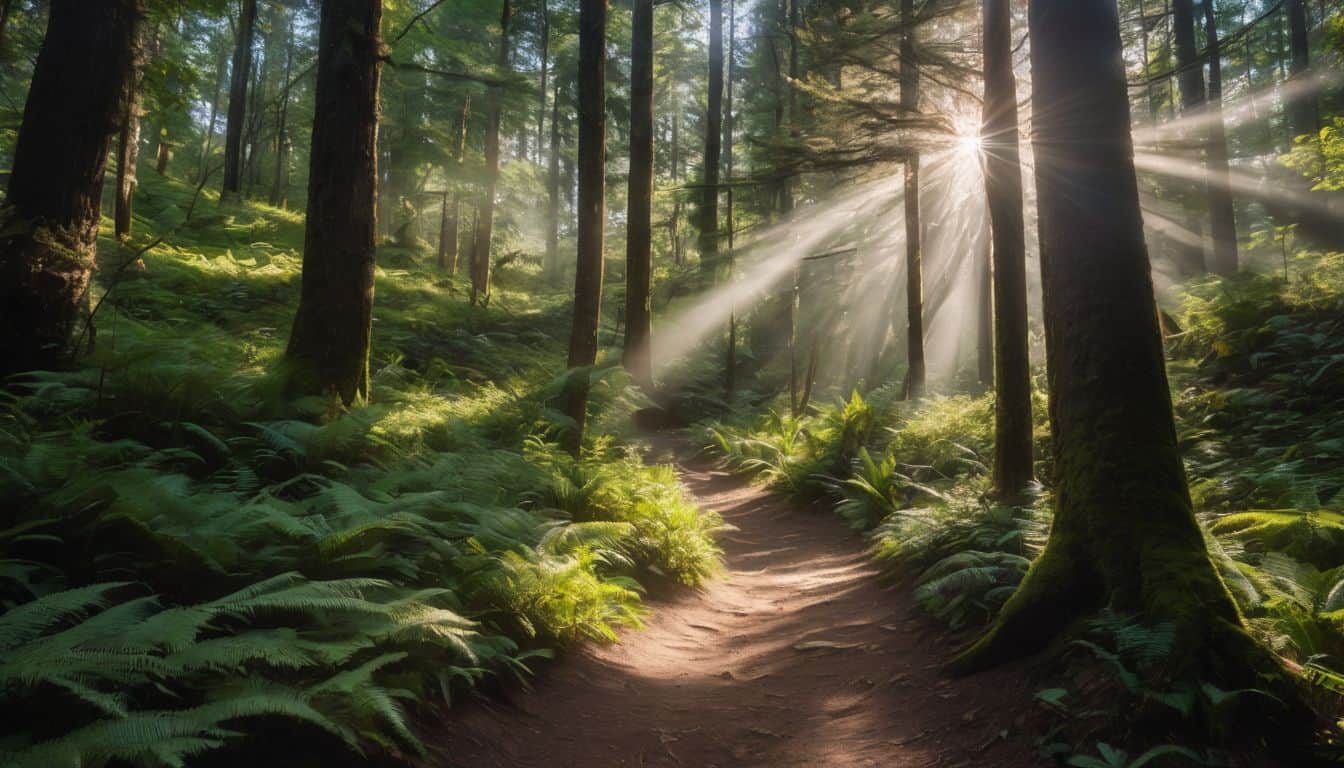
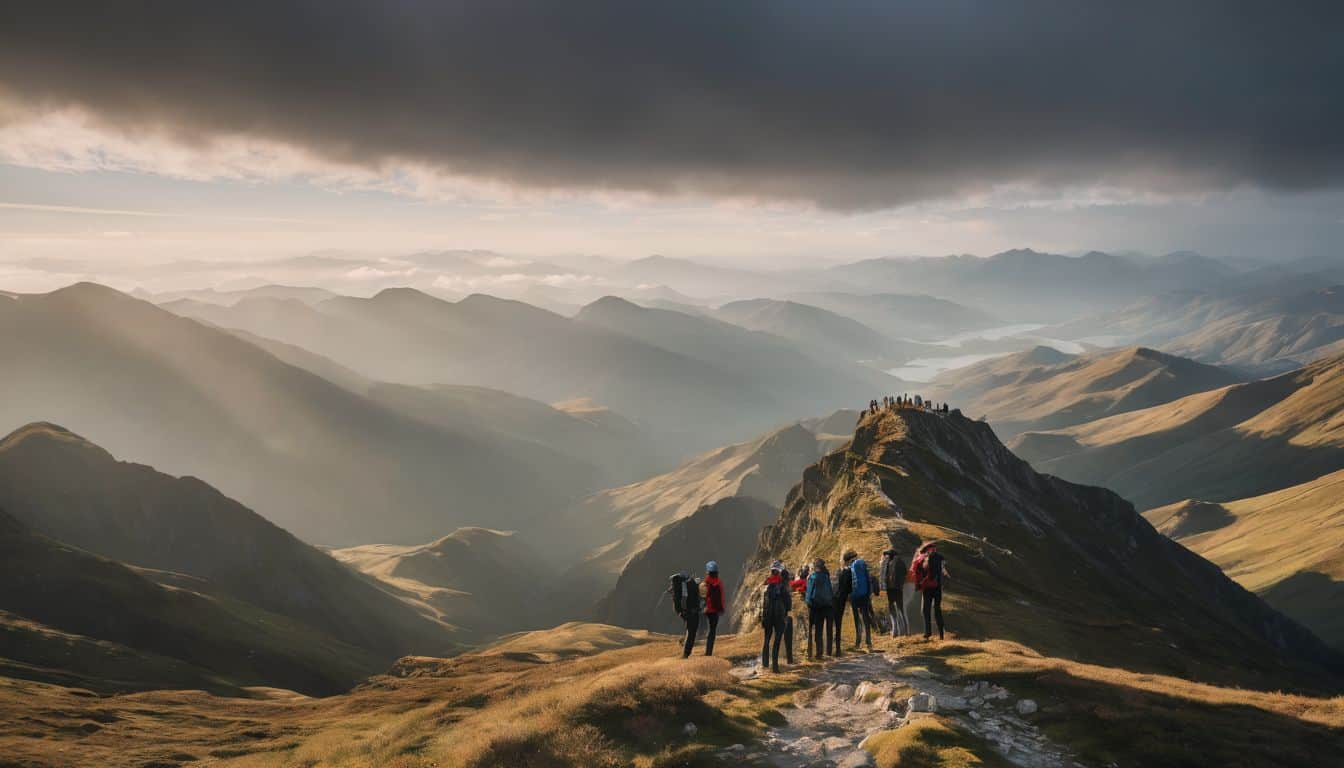
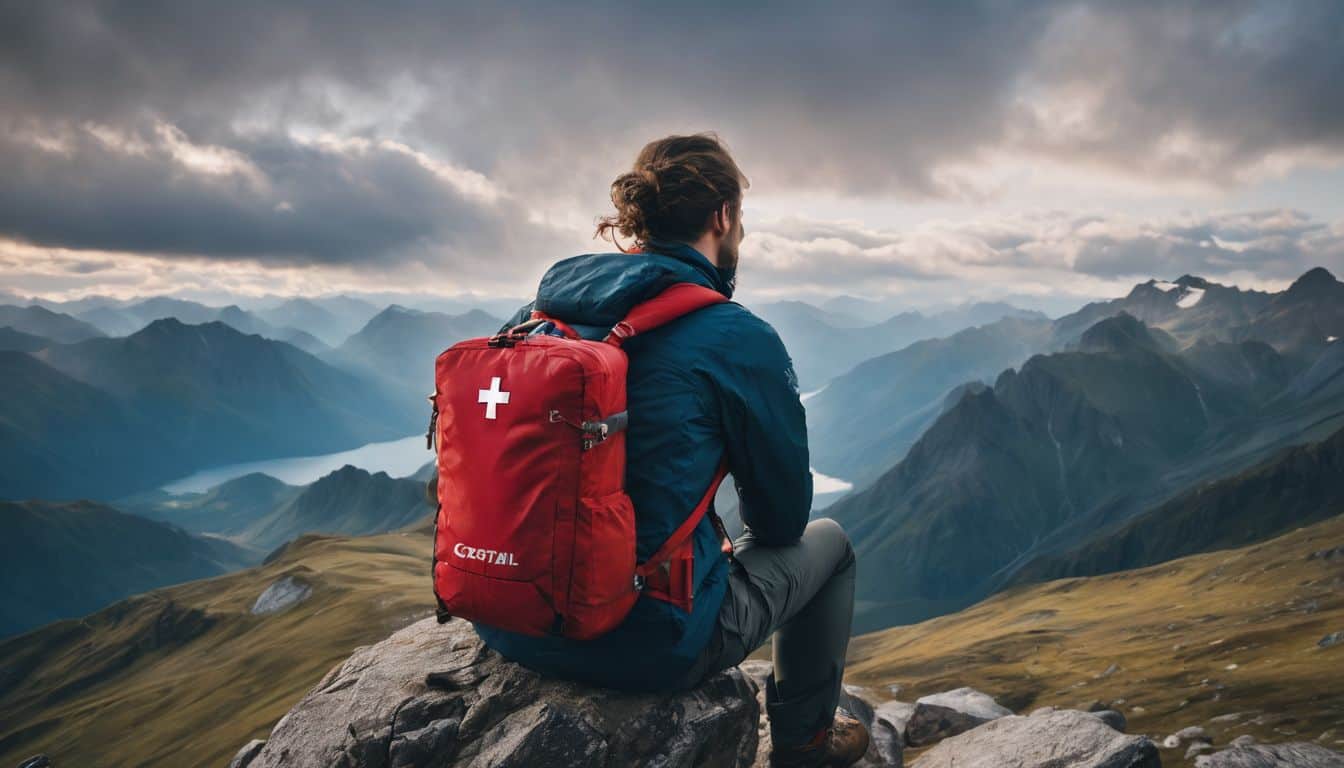
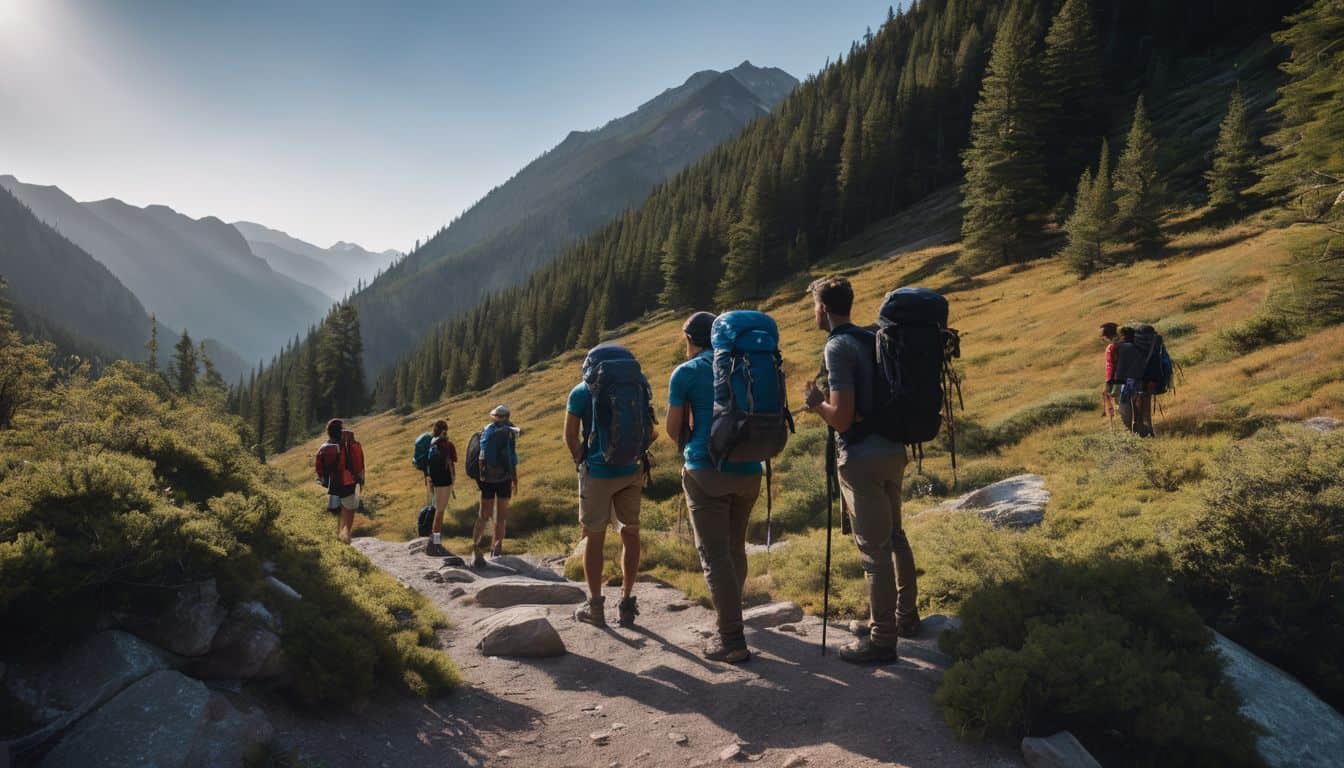
Leave a Reply